Related Research Articles

Stevland Hardaway Morris, known professionally as Stevie Wonder, is an American singer-songwriter, musician, and record producer. He is credited as a pioneer and influence by musicians across a range of genres that include R&B, pop, soul, gospel, funk, and jazz. A virtual one-man band, Wonder's use of synthesizers and other electronic musical instruments during the 1970s reshaped the conventions of contemporary R&B. He also helped drive such genres into the album era, crafting his LPs as cohesive and consistent, in addition to socially conscious statements with complex compositions. Blind since shortly after his birth, Wonder was a child prodigy who signed with Motown's Tamla label at the age of 11, where he was given the professional name Little Stevie Wonder.

Crispus Attucks was an American whaler, sailor, and stevedore of African and Native American descent, who is traditionally regarded as the first person killed in the Boston Massacre, and as a result the first American killed in the American Revolution.
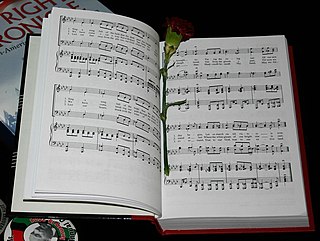
"Lift Every Voice and Sing" is a hymn with lyrics by James Weldon Johnson (1871–1938) and set to music by his brother, J. Rosamond Johnson (1873–1954). Written from the context of African Americans in the late 19th century, the hymn is a prayer of thanksgiving to God as well as a prayer for faithfulness and freedom, with imagery that evokes the biblical Exodus from slavery to the freedom of the "promised land."

"The Saint Louis Blues" is a popular American song composed by W. C. Handy in the blues style and published in September 1914. It was one of the first blues songs to succeed as a pop song and remains a fundamental part of jazz musicians' repertoire. Benny Goodman, Louis Armstrong, Cab Calloway, Bing Crosby, Bessie Smith, Eartha Kitt, Count Basie, Glenn Miller, Guy Lombardo, Peanuts Hucko, Art Tatum, and the Boston Pops Orchestra are among the artists who have recorded it. The song has been called "the jazzman's Hamlet". Composer William Grant Still arranged a version of the song in 1916 while working with Handy.
Song poems are songs with lyrics by usually non-professional writers that have been set to music by commercial companies for a fee. This practice, which has long been disparaged in the established music industry, was also known as song sharking and was conducted by several businesses throughout the 20th century in North America.
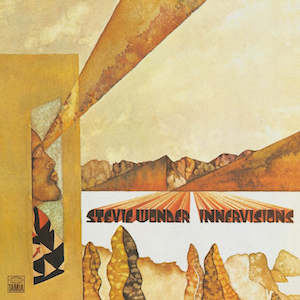
Innervisions is the sixteenth studio album by American singer, songwriter, and musician Stevie Wonder, released on August 3, 1973, by Tamla, a subsidiary of Motown Records. A landmark recording of Wonder's "classic period", the album has been regarded as completing his transition from the "Little Stevie Wonder" known for romantic ballads into a more musically mature, conscious, and grown-up artist. On the album, Wonder continued to experiment with the revolutionary T.O.N.T.O. synthesizer system developed by Malcolm Cecil and Robert Margouleff, and Innervisions became hugely influential on the future sound of commercial soul and black music.

Tom Feelings was an artist, cartoonist, children's book illustrator, author, teacher, and activist. He focused on the African-American experience in his work. His most famous book is The Middle Passage: White Ships/Black Cargo.

Nathan Lamar Watts is an American session bassist, best known for his work with Stevie Wonder from the 1970s to the present. He has served as Stevie Wonder's musical director since 1994.
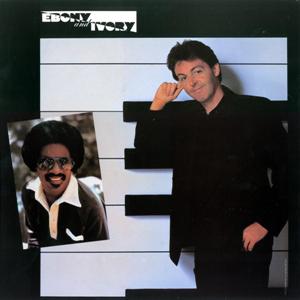
"Ebony and Ivory" is a song that was released in 1982 as a single by Paul McCartney featuring Stevie Wonder. It was issued on 29 March that year as the lead single from McCartney's third solo album, Tug of War (1982). Written by McCartney, the song aligns the black and white keys of a piano keyboard with the theme of racial harmony. The single reached number one on both the UK and the US charts and was among the top-selling singles of 1982 in the US. During the apartheid era, the South African Broadcasting Corporation banned the song after Wonder dedicated his 1984 Academy Award for Best Original Song to Nelson Mandela.
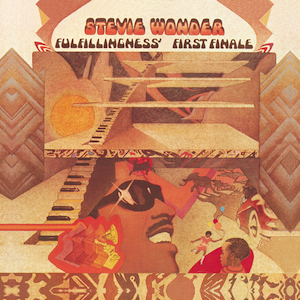
Fulfillingness' First Finale is the seventeenth studio album by American singer-songwriter, musician, and record producer Stevie Wonder, released on July 22, 1974 by Tamla, a subsidiary of Motown Records. It is the fourth of five albums from what is considered Wonder's "classic period".
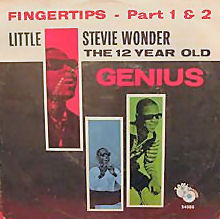
"Fingertips" is a 1963 hit single recorded live by "Little" Stevie Wonder for Motown's then Tamla label.

Crispus Attucks High School is a public high school of Indianapolis Public Schools in Indianapolis, Indiana, U.S. Its namesake, Crispus Attucks, was an African American patriot killed during the Boston Massacre. The school was built northwest of downtown Indianapolis near Indiana Avenue and opened on September 12, 1927, when it was the only public high school in the city designated specifically for African Americans.

"Boogie On Reggae Woman" is a 1974 funk song by American Motown artist Stevie Wonder, released as the second single from his seventeenth studio album, Fulfillingness' First Finale, issued that same year. Despite the song's title, its style is firmly funk/R&B and neither boogie nor reggae. It continued Wonder's successful Top Ten streak on the pop charts, reaching number three and also spent two weeks at number one on the soul charts. Billboard ranked it as the No. 26 song for 1975. At the 17th Grammy Awards, Stevie Wonder won the Best R&B Vocal Performance, Male for this song.
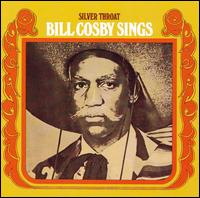
Silver Throat: Bill Cosby Sings (1967) is the sixth album by Bill Cosby.

"As" is a song written and performed by American singer and musician Stevie Wonder from his eighteenth album, Songs in the Key of Life (1976). The song was released in October 1977 by Tamla and reached number 36 on both the US Billboard Hot 100 and Black Singles chart. It gets its name from the first word of its lyrics.

Black Patriots were African Americans who sided with the colonists who opposed British rule during the American Revolution. The term Black Patriots includes, but is not limited to, the 5,000 or more African Americans who served in the Continental Army and Patriot militias during the American Revolutionary War.
Gary Byrd and the GB Experience was an American male/female vocal/instrumental group.
Imhotep Gary Byrd is an American, New York City–based radio talk show host and executive producer, radio DJ, poet, songwriter, music recording artist and producer, rapper, writer and community advocate/activist. Byrd began his career as a radio DJ in Buffalo at age 15. In 2015, he celebrated 50 years as a radio personality. For over 30 years, he’s been a talk show host at WBLS and WLIB radio in New York City.

The Colored Patriots of the American Revolution, With Sketches of Several Distinguished Colored Persons: To Which is Added a Brief Survey of the Conditions and Prospects of Colored Americans, or, in brief, The Colored Patriots of the American Revolution, is an American history book written by William Cooper Nell, with an introduction by Harriet Beecher Stowe. It was published in 1855 by Robert F. Wallcut. It focuses on African-American soldiers during the American Revolution and the War of 1812. It details "the services of the Colored Patriots of the revolution".

Yvonne Lowrene Wright was an American songwriter and vocalist best known for co-writing with Stevie Wonder in the 1970s. Their songs appear on the albums Music of My Mind, Talking Book, Fulfillingness' First Finale, and Stevie Wonder's Journey Through "The Secret Life of Plants".
References
- ↑ McFerrin, John. "Stevie Wonder- Songs In The Key Of Life" . Retrieved 4 April 2021.
- 1 2 Wonder, Stevie; Byrd, Gary. "Black Man Lyrics". MetroLyrics. Archived from the original on 25 June 2013. Retrieved 28 March 2016.
{{cite web}}: CS1 maint: unfit URL (link) - ↑ Werner, Craig Hansen (2006). A Change is Gonna Come: Music, Race & the Soul of America. University of Michigan Press. p. 187. ISBN 9780472031474.
- ↑ Gulla, Bob (2008). Icons of R&B and Soul: Smokey Robinson and the Miracles ; The Temptations ; The Supremes ; Stevie Wonder. Greenwood Publishing Group. p. 322. ISBN 9780313340468.
- ↑ Wilson, Ivy G (2011). Specters of Democracy:Blackness and the Aesthetics of Politics in the Antebellum U.S. Oxford University Press. p. 169. ISBN 9780199843725.
- ↑ "Sing Kee – Recipient – Military Times Hall Of Valor". valor.militarytimes.com.
- ↑ "Sing Lee". Hall of Valor. Military Times. Archived from the original on 29 March 2016. Retrieved 29 March 2016.
- ↑ "Black or Afro-American Inventors: Patent and Invention Index" (PDF). Turlock, California: California State University, Stanislaus. Archived from the original (PDF) on 29 March 2016. Retrieved 29 March 2016.